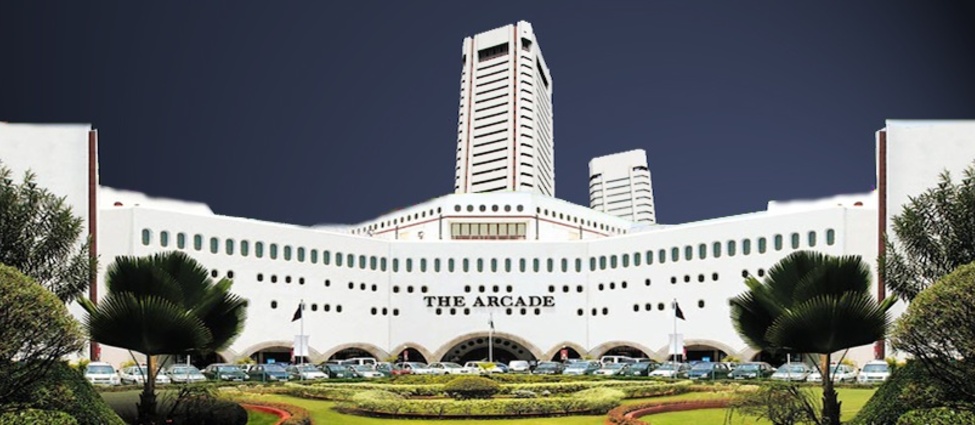

News
Challenges in waste management poses opportunity

MUMBAI, INDIA - “Mumbai’s population of two crore produces 500 gm of waste per capita, with such volumes of waste to be managed, catering to its management has proved to be a failure posing both challenges and opportunities. Waste management is being mismanaged by the informal sector and to put it in order requires the involvement of the formal sector. It is thriving opportunity for the MSME sector to explore waste management”, said Mr. U P S Madan, Metropolitan Commissioner, and MMRDA in his opening remarks at the Regional Dialogue, Mumbai, third in the row of dialogues leading to the 15th Delhi Sustainable Development Summit (DSDS 2015). The DSDS has been organizing Regional Dialogues at various cities on topics such as climate change, waste management, etc. The topics identified for Regional Dialogue: Mumbai’s waste management and sustainable transportation are pertinent for the city’s overall economic development and growth. The Dialogue was jointly organized on 11th December 2014 by MVIRDC World Trade Centre Mumbai, All India Association of Industries, World Sustainable Development Forum, TERI, Agence Francaise of Development and United Nations Development Program. Mumbai has made pioneering efforts in the arena of waste management making it stand out on the world map, however much remains to be done with growing urban areas, Mr. Madan added.
While broadly outlining the issues facing waste management, Mr. G. S. Gill, Distinguished Advisor, TERI and Ex. MD and VC, CIDCO said that policy issues posed a major hindrance. Public policy was not clear; guidelines made in 2000 were not revised since then, due to new emerging technologies. India was blindly following the practices adopted by the west failing to realize that the waste produced in India was different from theirs. Rural areas produce far less waste as compared to the urban areas. While the waste in the west was more to do with plastics and was recyclable Indian waste is more organic. It is important to segregate waste prior to disposal. One has to use technology best suited to the waste being produced. Dump grounds were fast filling and the question which lingered is how would land need to be recycled. In an urban set up there is shortage of land, technology is expensive. The other challenge is how to make people to live near a dumping ground. Lastly, financing poses a major challenge. The question arises whether the waste management projects can be made viable through a PPP mode if other expensive forms of financing it are not feasible.
According to Mr. R B Gupte, Director, MSME Development Institute the waste management sector was a fast growing one. E-waste needed much focus. It is generated in every household with the increase of technological gadgets. So it is important to either reuse or dispose it. Although some amount of legislations has been passed in this area much still needs to be addressed. Issues that need to be addressed are hazardous chemicals that are released which need to be neutralized, skill mapping and development. There is a growing educated unemployed youth that can be engaged in this sector, which will also bring about income generation.
Mr. Suneel Pandey, Associate Director, Green Growth and Resource Efficiency, TERI spoke on the difference in treating waste here in India and abroad. The initiative in tacking the issue lies in decentralization. At the household level, there is a sense of apathy among people to segregate the waste. One needs to segregate prior to handing over waste. Value-addition is important while converting waste into usable and fuel efficient products. Treatment of waste poses a challenge. Skilled manpower is required, which could mean introduction of a curriculum in the education system.
Mr. Shantanu Roy, Senior Vice-President, Environmental Management Centre while elaborating on the initiatives taken so far said that they were sporadic and not on a sustained basis. Waste categorization was important based on the consumption levels. Urban local bodies need to take informed decisions on how to tackle waste management. India has six climatic zones which play an important role on the waste being produced. Technologies, structured approach, linkages between universities are some of possible solutions in addressing the issue. Also, waste was being generated from packaging of products. A possible way to address would be to either penalize or incentivize depending on who is the polluter and who is the controller. Procurement policy needs to be strategized. It was important to understand the quantum of waste, use suitable technology in managing it and propose a business case for it, Mr. Roy added.
Dr. Amiya Kumar Sahu, President & Founder, National Solid Waste Association of India addressed the basic issue of what comprises garbage and its value. Waste management is everybody’s responsibility. Awareness of waste, segregation of it needs to be followed by everyone. It is essential to keep one’s country clean to stay at par with developed countries. A creation of a Smart City is only possible if waste management is adhered to.
During the panel discussion which followed eminent experts Mr. Shri Prakash, Distinguished Fellow, TERI, Former Member (Traffic), Indian Railway Board & Former Secretary to Government of India , Mr. Rakesh Saksena, Former Chairman, Mumbai Railways Vikas Corporation Ltd , Mr. Abhay Mishra, CEO, Mumbai Metro One Pvt Ltd, Mr. Anirban Ghosh, Vice President, Sustainability, CSR and Ethics, Mahindra & Mahindra Ltd (Auto Farm Sector, Dr. Annapurna Vancheswaran, Director, Sustainable Development Outreach, The Energy and Resources Institute (TERI) shared their views on “Sustainable and Smart Urban Transport for Mumbai”.
In photo: (L-R): Ms. Rupa Naik, Executive Director, AIAI & Director-Projects,WTC Mumbai, Dr. Annapurna Vancheswaran, Director, Sustainable Development Outreach Division, TERI, Capt. Somesh Batra, Vice Chairman, WTC Mumbai, Mr. G S Gill, Distinguished Advisor TERI, Mr. Shri Prakash, Distinguished Fellow, TERI.
To learn more about WTC Mumbai, click on the source link below: